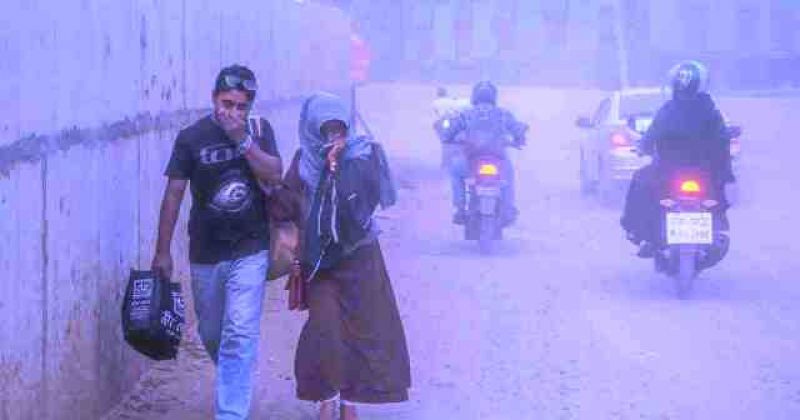- OIC Deeply Regrets UNSC Failure to Accept Palestine as UN Member |
- Retaliatory spiral in Middle East must end, says UN chief |
- Rakhine State once again becomes a battleground: UN HR Chief |
- No political case filed against BNP men: PM Hasina |
- Iran fires at attack drones near Isfahan air base, nuke site |
Dhaka’s air ranks 2nd worst in world on Sunday

Air pollution in a Dhaka street. UNB photo
Dhaka, Jan 9 – Dhaka which has long been grappling with air pollution issues has once again been rated as the world's second-most polluted city.
Dhaka's air quality index (AQI) was recorded at 188 at 10:21 am on Sunday, which is considered ‘unhealthy'.
China’s Shenyang and India’s Kolkata occupied the first and third spots with AQI scores of 253 and 188 respectively, in the latest list of world cities with the worst air quality.
An AQI between 101 and 200 is considered 'unhealthy', particularly for sensitive groups.
AQI, an index for reporting daily air quality, is used by government agencies to inform people how clean or polluted the air of a certain city is, and what associated health effects might be a concern for them.
In Bangladesh, the AQI is based on five criteria pollutants -- Particulate Matter (PM10 and PM2.5), NO2, CO, SO2 and Ozone.
Dhaka’s air quality usually turns unhealthy during winter and improves during monsoon.
A report by the Department of Environment (DoE) and the World Bank in March 2019 pointed out that the three main sources of air pollution in Dhaka "are brick kilns, fumes from vehicles and dust from construction sites".
With the advent of winter, the city’s air quality starts deteriorating sharply due to the massive discharge of pollutant particles from construction works, rundown roads, brick kilns and other sources.
Air pollution consistently ranks among the top risk factors for death and disability worldwide. Breathing polluted air has long been recognised as increasing a person’s chances of developing heart disease, chronic respiratory diseases, lung infections and cancer, according to several studies.
As per the World Health Organization (WHO), air pollution kills an estimated seven million people worldwide every year, largely as a result of increased mortality from stroke, heart disease, chronic obstructive pulmonary disease, lung cancer and acute respiratory infections. - UNB

